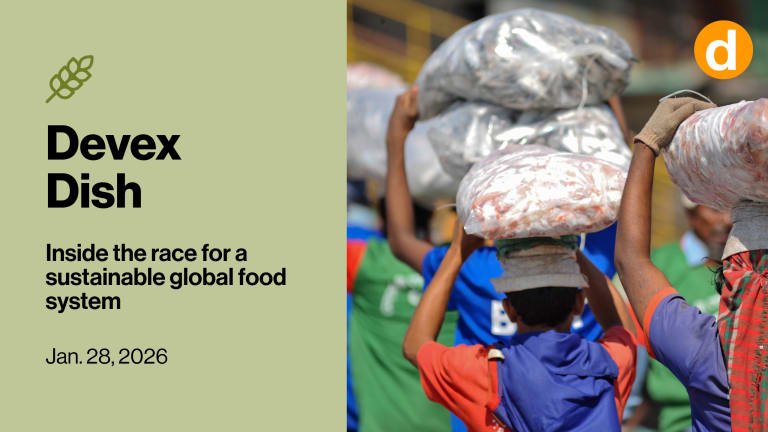
Smallholder farmers across the globe face a barrage of forces — from globalization, technological advances, and market liberalization, to privatization and climate change — that are disrupting and realigning their livelihoods. Previously well-established systems of political, social, economic and environmental resilience are shifting. Conflict, natural disaster, pandemics and economic shocks are apparently increasing in frequency and severity.
Purchase for Progress was launched by the World Food Programme in an effort to help smallholder farmers better cope with these drivers of change and vulnerability. Since 2008, P4P has sought to help these farmers seize opportunities throughout staple food value chains. We looked for programming and procurement models that showed the greatest potential to stimulate agricultural and market development in ways that maximize benefits to smallholder farmers.
P4P has demonstrated that smallholder farmers are ready and capable of stepping up to participate in formal markets when given the opportunity. We’ve seen numerous positive impacts and outcomes in the lives of smallholder farmers and their families, the way farmers’ organizations do business, and even in the way entire markets function. But we’ve also faced challenges. The following are some of the key lessons we’ve learned.
Three lessons learned
1. We need to find new ways of capturing our impacts and measuring success
P4P generated many positive impacts. We have improved smallholder farmers’ livelihoods, strengthened farmers’ organizations capacity and supported women’s empowerment. We hear these positive stories echoed in our research, in our discussions with government officials, and of course, from farmers themselves. For instance, P4P helped generate a systemic market change in how goods are priced in Ghana. In countries such as Guatemala and Rwanda, national governments are changing the way they work with farmers using the P4P approach.
But one of the key lessons we’ve learned is that quantitative impact assessment of wide-ranging and complex demand-side market development projects such as P4P raise substantial methodological challenges. We must innovate in our efforts to track systemic changes in markets and broaden our vision of success. Helping one smallholder farming family is a great outcome, but shifting entire market systems will have broader results, albeit harder to quantify.
2. Social and human capital require increased attention in farmers’ organizations
P4P mainly worked through farmers’ organizations. These groups often require support to improve “hard capacities” — or the ability to boost their production, crop management and access to credit. To ensure all farmers benefit equally and that the organization is successful in delivering on its promises, farmers’ organizations must have a common vision for success and shared goals for the future. Farmers themselves must have trust in the leadership and direction of their organization. They must also feel ownership of the organization and see their own values and desires reflected within it. Only then can they successfully engage with demand-side market development interventions.
3. Stable demand key to driving sustainable change
Research across countries has shown that buying from smallholder farmers is most successful when larger contract sizes are available, prices are stable and consistent sales are made over time. For demand-side approaches to yield substantial impacts, we must have stable and consistent demand to offer farmers. This predictability incentivizes them to invest. Such demand is far from automatic and must be carefully and consistently planned.
Helping farmers go the last mile
P4P’s vision was to see best practices mainstreamed in WFP’s everyday work, as well as communicated to national governments and other actors in agricultural sectors. The P4P pilot was the first step of this multi-stage process.
Today, we at WFP are viewing our portfolio broadly — examining how our work supporting smallholder farmers fits into broader efforts to address key shortcomings in food systems. P4P is one of the key pieces to addressing these shortcomings by helping smallholder farmers go the final mile to market. And as we strengthen our own portfolio, we continue to look for ways in which we can continue supporting policy and institutional reform to promote pro-smallholder agricultural market development.
Read more international development news online, and subscribe to The Development Newswire to receive the latest from the world’s leading donors and decision-makers — emailed to you FREE every business day.








